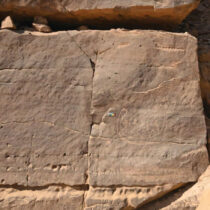The debate of the Christian community about medical science is recorded in the saints Vitae of the seventh century, a particularly transitional period. These texts present the perceptions for the prevailing therapeutical models and for the proposed solutions for charities both in the Byzantine provinces and in the major cities of the empire. The incapability of the pagan medical science, exercised by various Hellenizer and Jewish profiteers in the imperial and aristocratic cycles, is stressed in many of the Vitae miracles. The repeatedly mentioned inefficiency of Hippocrates, Galen, Democritus and their contemporary hiatrosophists, compared to the effective activity of saints, is very often documented by the narrated incidents. Thus Christianity not only disputes medical science and therapeutic folk practices, but also sheds whatever considers conflicting with its interests, either as a doctrine or as a way and organization of life. The battle against magicians, charmers, hiatrosophists, pagan healers is preserved to a certain extend by the stately expression of Christian philanthropy. Therefore, it is not the physician who is disputed, but his incorporation in social groups that serve or apply unacceptable or competitive religious or therapeutic techniques. Church is the leader in claiming the management of medicine and healing and demonizes or humiliates whoever physician is not Christian. The humiliation of Late Antiquity physicians who are hardly needed corresponds to the presents situation, when the therapeutic need, despair, financial and social status, education and religious faith and mainly the conflicting interests of physicians and patients lead constantly to their mutual alienation.
When Physicians Are (Almost) Hardly Needed
30 Aug 2012
by Archaeology Newsroom
- A
- A
- A


